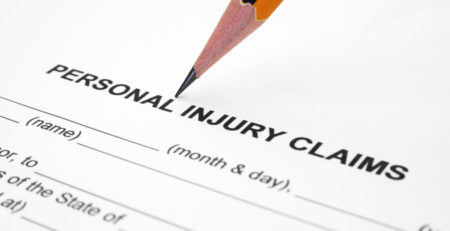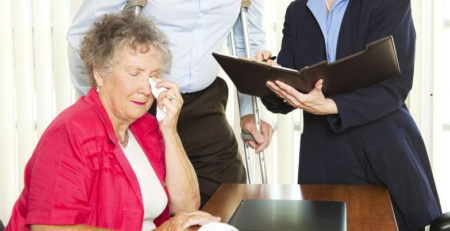TOP MYTHS ABOUT TRAUMATIC BRAIN INJURIES (AND THE TRUTH THAT VICTIMS AND THEIR FAMILIES SHOULD KNOW)
The Centers for Disease Control and Prevention report that more than 1.5 million of us sustain a traumatic brain injury (TBI) each year in the U.S. Any traumatic brain injury is a serious injury. More than 50,000 traumatic brain injury victims die each year as a result of their injuries.
Here in the state of Indiana, if you sustain a traumatic brain injury in any type of accident because another person was negligent, Greenwood injury lawyers are available and ready to represent you, handle your personal injury claim, and fight for compensation on your behalf.
An insurance company may try to avoid paying the full compensation that a traumatic brain injury victim is entitled to by making false claims that misrepresent the truth about traumatic brain injuries.
If you keep reading, you will find the most common and widespread of these myths about traumatic brain injuries listed – and debunked – below.
MYTH #1: MILD TRAUMATIC BRAIN INJURIES ARE NOT SERIOUS INJURIES
A traumatic brain injury may affect the victim’s emotions, the ability to think, and the ability to use language. TBIs can trigger epilepsy and raise the risk of Alzheimer’s, Parkinson’s, and related brain disorders. The effect of a traumatic brain injury on a loved one can be devastating to the entire family.

Medical researchers have proven again and again that even a mild traumatic brain injury may mean life-long difficulties for traumatic brain injury victims and their families.
MYTH #2: IF YOU WEREN’T UNCONSCIOUS, IT’S NOT A TBI
This is a dangerous but common myth. It is not true that the force needed to cause a concussion must also be enough force to cause unconsciousness.
In fact, brain damage combined with a brief loss of consciousness that lasts less than twenty minutes – or combined with no loss of consciousness at all – is part of the definition of a mild traumatic brain injury.
For decades, a number of doctors and medical researchers have confirmed that unconsciousness is not a necessary consequence of a traumatic brain injury. If you suffer a blow or jolt to the head, see a doctor at once, even if you remain fully conscious.
MYTH #3: IF THERE’S NO BLOW TO THE HEAD, IT’S NOT A TBI
When someone’s head is subjected to rapid acceleration and deceleration forces – that is, to whiplash – the force causes the brain to impact against the other side of the skull. Damage happens on opposite sides of the brain.
The result is a “Coup Contra Coup” brain injury or a “Diffuse Axonal Injury” that can stretch and tear the neurons that send electrical impulses through brain.
MYTH #4: ONLY A POSITIVE MRI OR CT SCAN PROVES YOU’VE SUSTAINED TBI
The truth is that the majority of mild traumatic brain injuries involve a negative CT scan or MRI. Many doctors who treat TBIs will confirm that their traumatic brain injury patients often produce normal CT scans and normal electroencephalograms.
MYTH #5: TBIs ARE IMMEDIATELY AND EASILY DETECTIBLE
TBIs, in fact, are not always immediately and easily detectable, which is why you must have a medical exam immediately after suffering any blow or jolt to the head or any suspected whiplash.
According to the authors of Greenfield’s Neuropathology, which Google calls the world’s leading neuropathology reference, “there is a process of delayed taxonomy in which the actual disruption of some axons does not occur until some time after the original injury.”
MYTH #6: TESTS FOR TBI ARE SUBJECTIVE
A variety of neurological tests measure brain function. Since a patient must give his or her best efforts on these tests, defense lawyers and witnesses in personal injury cases may claim that the tests are inconclusive because a patient can influence the result. This claim has been debunked.
In the widely used textbook Mental Status Examination in Neurology, the authors explain that neuropsychological tests provide an objective look at a wide range of cognitive and emotional behaviors that indicate the condition of the brain.
Moreover, the American Academy of Neurology has determined that neuropsychological testing is acceptable, appropriate, and in the vast majority of TBI cases, accurate.

MYTH #7: A MILD TBI CANNOT CAUSE A DISABILITY
This simply is not true. A mild traumatic brain injury can lead to severe disability. The root of this myth may be the fact that most persons who are disabled by a traumatic brain injury look entirely normal and healthy.
MYTH #8: A MILD TRAUMATIC BRAIN INJURY IS NEVER PERMANENT
This isn’t true, either. A number of medical research studies have determined that 15 to 25 percent of mild traumatic brain injury victims will suffer from life-long symptoms and problems as a result of the injury.
MYTH #9: A CHILD WHO SUFFERS A MILD TBI RECOVERS EASILY
While many of the children who sustain a mild traumatic brain injury do in fact recover quickly and easily, many others do not. In fact, some children develop problems related to a brain injury weeks and even months later.
When the part of a child’s brain that is damaged in an accident has not yet fully developed, the full damage may not become apparent until that part of the brain has developed more fully.
CAN YOU BE COMPENSATED AFTER A TRAUMATIC BRAIN INJURY?
If you sustain a brain injury in a traffic accident – or in any accident caused by someone else’s negligence in Indiana – the law entitles you to full compensation for your accident-related medical care along with compensation for lost income and all other related damages.
A good personal injury lawyer will fight for your compensation and will also see to it that you meet with medical professionals who can provide effective treatment to traumatic brain injury victims.
Your attorney may also seek the help of a brain injury authority and/or the help of an accident reconstruction specialist to testify or to submit a statement on your behalf.
HOW IMPORTANT IS IT TO CHOOSE THE RIGHT LAWYER?
However, an attorney who doesn’t fully understand the problems related to a TBI may suggest settling your injury claim for less than you need and deserve. While a lawyer decides whether to handle your case, you should also be deciding if that attorney is the right attorney for you.
Greenwood injury lawyers routinely represent the injured victims of negligence – and fight aggressively for justice on their behalf – in the Indianapolis area and across the state. Don’t take chances with a traumatic brain injury. Seek medical attention at once after any blow to the head.
After you’ve seen a doctor, schedule a meeting at once with a premises liability attorney who can review your claim. You have two years to take legal action if you’ve been injured by negligence in Indiana, but do not wait. If you are injured by negligence, obtain a good lawyer’s help at once.





